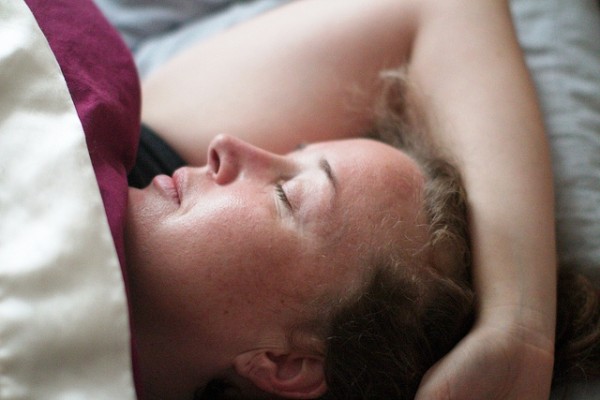Sleep Apnea Patients are More Likely to Get Diabetes: Study

A new study confirms the link between obstructive sleep apnea and diabetes.
Patients of obstructive sleep apnea (OSA) experience breathlessness while sleeping that reduces the oxygen dissolved in the blood. This can cut oxygen supply to the brain leading to decline in mental health and memory problems in later years. In a recent research, experts found sleep apnea patients have increased susceptibility for diabetes.
Their study, which is so far known as the largest trial on OSA and diabetes, observed nearly 8,678 participants without diabetes but suspected to have OSA. The subjects were followed for 16 years and using apnea-hypoapnea index, they were grouped according to the severity and number of airway blockages suffered during sleep.
Patients of mild sleep apnea had less than five airflow cessation per hour. Those with moderate and severe apnea complained of having five to 15 and 15 to 30 episodes of breathlessness, respectively. The researchers also recorded other variables like age, sex, body mass index, neck circumference, smoking habits and income levels of the participants.
In the entire study period, about 1,107 people were diagnosed with diabetes. The risk rates were 30 percent higher for chronic sleep apnea patients. People with moderate and mild sleep apnea had 23 percent increased possibility for developing diabetes.
Individuals with repeated obstruction in the airway are mostly sleep deprived. The heart rates undergo variations due to sleep disturbances and rapid eye movement that in turn activates sympathetic nervous system. All these trigger responses in the body that increase the chances of having diabetes.
"After adjusting for other potential causes, we were able to demonstrate a significant association between OSA severity and the risk of developing diabetes," said Tetyana Kendzerska, study author and researcher from the University of Toronto in a news release.
"Our findings that prolonged oxygen de-saturation, shorter sleep time and higher heart rate were associated with diabetes are consistent with the patho-physiological mechanisms thought to underlie the relationship between OSA and diabetes."
Past clinical trials conducted for shorter periods with limited number of participants could not clearly establish a connection between both health conditions. However, authors believe further investigation is needed owing to a few limitations in the current experiment.
More information is available online in the American Journal of Respiratory and Critical Care Medicine.
Jun 06, 2014 08:32 AM EDT





